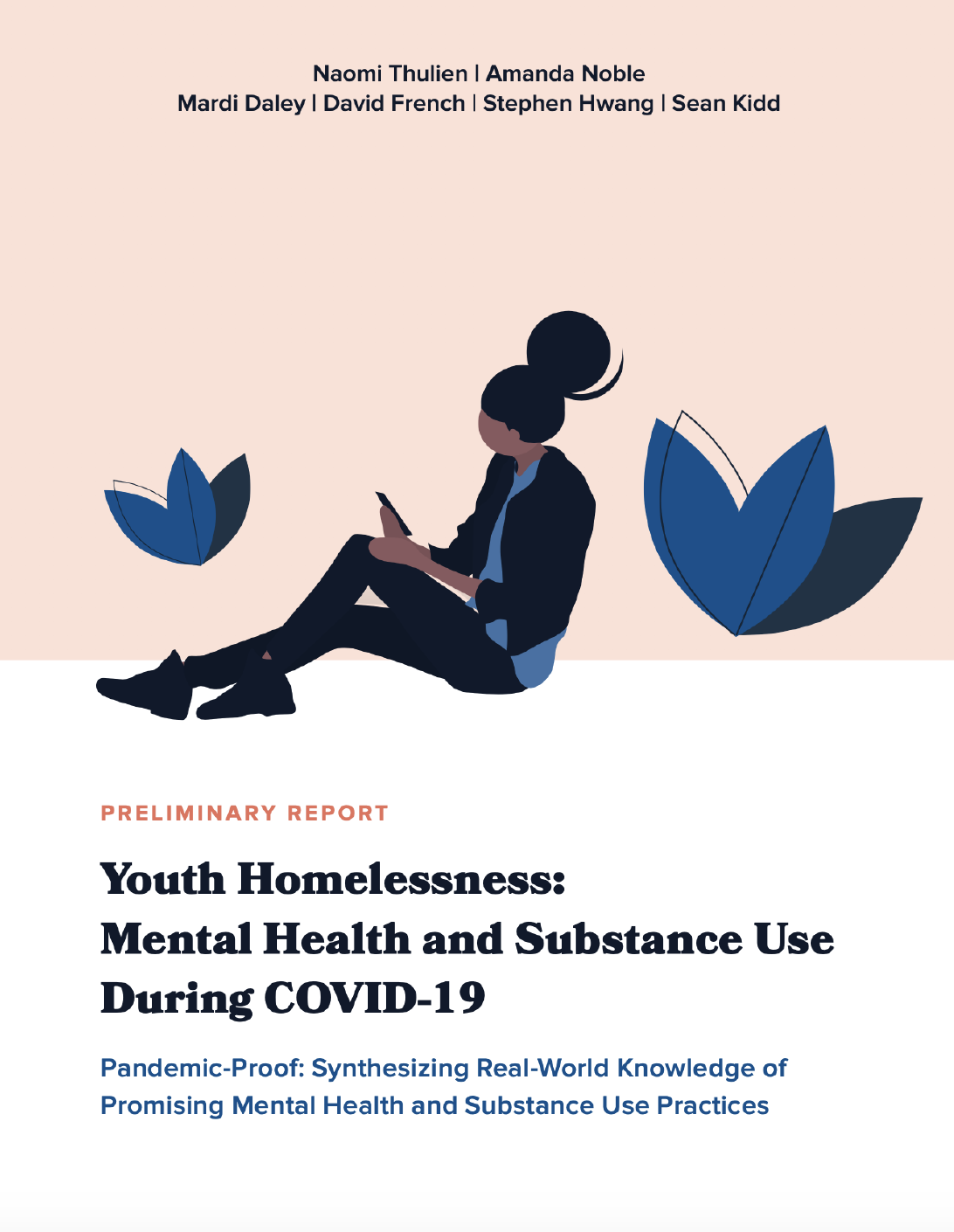Goal: The overall goal of this project is to rapidly synthesize real-world knowledge on promising mental health and substance use practices utilized by front-line providers serving young people who are experiencing or have experienced homelessness during the COVID-19 pandemic.
Background: An estimated 35,000-40,000 Canadian youth (aged 13 – 24 years) experience homelessness at some point during the year and at least 6,000 on any given night (Gaetz et al., 2016). The overwhelming majority have experienced some form of trauma and their challenges related to mental health and substance use have been documented for decades (e.g., Auerswald et al., 2019; Hwang, 2000; Karabanow, 2008; Kidd et al., 2017; Kulik et al., 2011; Roy et al., 2010; Wood et al., 2006). Struggles with mental health and substance use are not unique to young people currently experiencing homelessness; rather, these challenges persist – and sometimes get worse – for young people who have experienced homelessness in the past (Kidd et al., 2016; Thulien et al., 2018, 2019). Thus, it is against this backdrop of social and structural inequities and limited guidance in peerreviewed literature around “what works” to improve outcomes related to mental health, substance use, and sustained exits out of homelessness (see reviews by Altena et al., 2010; Coren et al., 2016; Hwang & Burns, 2014; Luchenski et al., 2017; Wang et al., 2019; Watters & O’Callaghan, 2016), that the COVID-19 pandemic came on scene – accelerating our need for an evidenceinformed response.
Objective 1: Examine how COVID-19 has impacted the mental health and substance use patterns of young people who are currently experiencing or have experienced homelessness. We did this by beginning with an electronic survey to examine our key domains of: a) pandemic impacts on mental health and substance use patterns; b) practice adaptations; and c) promising and transformative approaches.
Objective 2: Identify how front-line providers have adapted their practices to address these needs. We will do this by conducting targeted focus groups and individual interviews with providers that (through the survey) have identified particularly innovative and effective approaches.
Objective 3: Highlight promising and transformative approaches to service delivery – particularly those with post-pandemic promise – that warrant further investigation. Key mobilization activities include dissemination to multisectoral stakeholders through: plain language reports, policy briefs, social media dissemination, op-eds, academic and non-academic presentations, and publications in open-access journals.

